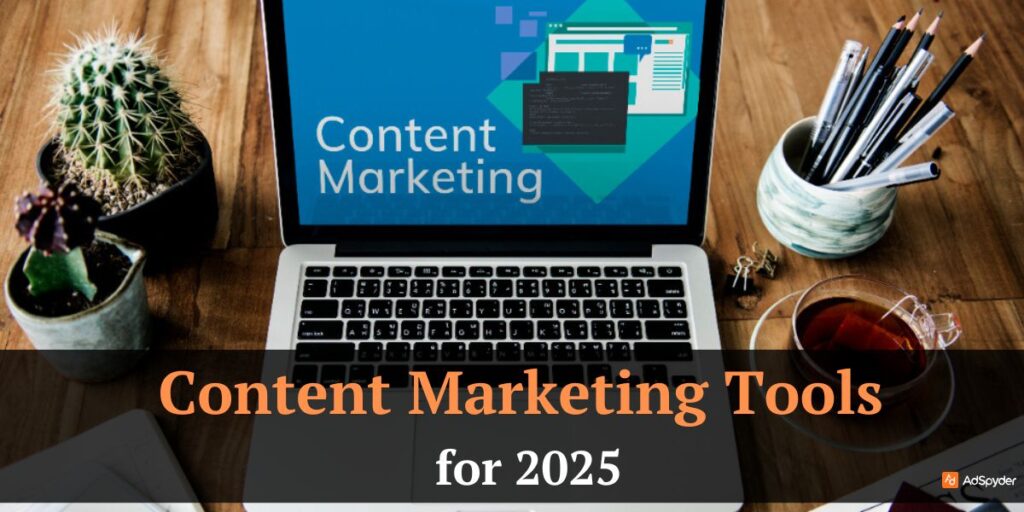Content reigns supreme in this current digital marketing era. Whether you’re a small business or an established one, everyone is leveraging the power of content to attract audiences, establish brand authority, nurture leads, and ultimately drive conversions. While all of these benefits are considered, creating such high-quality content consistently requires more than just inspiration and writing skills. Content marketers today rely on a diverse arsenal of tools to streamline workflows, optimize content performance, and measure success. This comprehensive guide dives into the top content marketing tools. We’ll explore free and paid options across various categories, catering to different needs and budget considerations.
Ready to Elevate your Marketing Strategy?
Summary
As we go deeper into this context, we’ll go through all the various categories of content marketing tools, highlighting some must-have options for each category. Why not take a quick look-see? Here are the categories of content :
- Content Planning and Strategy Tools: We’ll be exploring the tools that will help you brainstorm content ideas, conduct keyword research, plan content calendars, and manage editorial workflows.
- Content Creation Tools: Discover tools that will assist with your content creation across various formats, including writing, graphic design, video editing, and content management systems (CMS).
- Content Optimization Tools: Dive with us into tools that will empower you to optimize your content for search engines (SEO) to improve organic search visibility and ranking.
- Content Distribution and Promotion Tools: Explore tools that will facilitate content scheduling and distribution across various channels like social media, email marketing, and content syndication platforms.
- Content Measurement and Analytics Tools: We’ll discuss tools that help provide valuable data and insights on content performance, allowing you to track key metrics, measure ROI, and optimize your content strategy for better results.
The blog will also include an FAQ section to address some of the most commonly asked questions regarding content marketing tools, followed by a conclusion that summarizes key takeaways and offers a call to action.
Content Planning and Strategy Tools
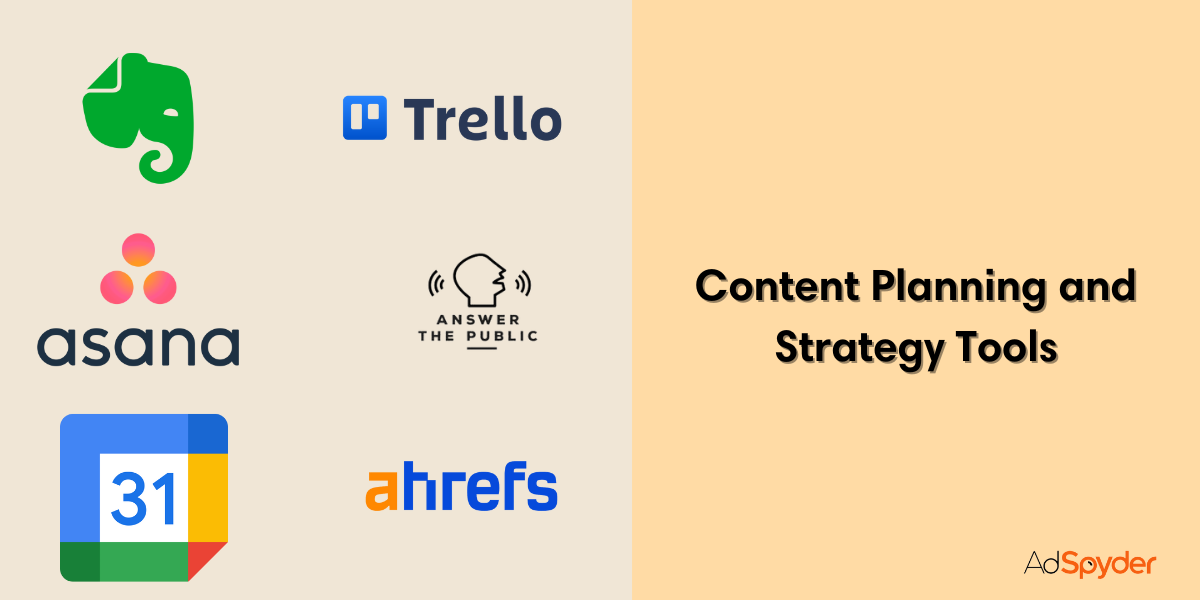
Here are some tools for your content planning and strategy –
1. Evernote (Free & Paid Plans)
Evernote is this versatile note-taking and organization app that every content marketer needs! It allows you to capture your content ideas, research notes, web clippings, and inspiration all on the go. Evernote’s tagging and organization features are some of the best ones on a mobile app and make it quite easy to categorize and find information later. Collaborate with your team members by sharing notebooks and fostering a seamless content creation workflow.
2. Trello (Free & Paid Plans)
Trello is a popular project management tool that can be incredibly useful for content planning and strategy. This tool utilizes a board and card system, allowing you to create content calendars, visualize workflows, assign tasks to team members, and track progress. Trello’s drag-and-drop functionality makes it intuitive and easy to use.
3. Asana (Free & Paid Plans)
Asana is another project management tool well-suited for content marketing teams. Create content calendars, assign tasks with due dates, track progress, and collaborate seamlessly with team members on content projects. Asana offers various features to manage dependencies, prioritize tasks, and keep everyone on the same page.
4. Google Calendar (Free)
Don’t underestimate the power of a simple calendar tool like Google Calendar. Schedule content brainstorming sessions, editorial meetings, content deadlines, and distribution schedules. Integrate Google Calendar with other content marketing tools for a unified workflow. Share calendars with team members to ensure everyone is aware of upcoming content deadlines and deliverables.
5. AnswerThePublic (Free)
AnswerThePublic is a fantastic tool for generating content ideas based on user search queries. Simply enter a keyword or topic, and AnswerThePublic displays a visual map of questions, prepositions, and comparisons people are searching for related to that topic. This data is invaluable for understanding user intent and crafting content that addresses their specific needs and search queries.
6. Ahrefs (Paid)
Ahrefs is a comprehensive SEO tool suite that offers valuable features for content planning and strategy. Utilize Ahrefs’ keyword research tool to identify high-volume, low-competition keywords that your target audience is searching for. Analyze competitor content to understand what’s ranking well on search engines and identify opportunities to create better, more informative content.
Content Creation Tools
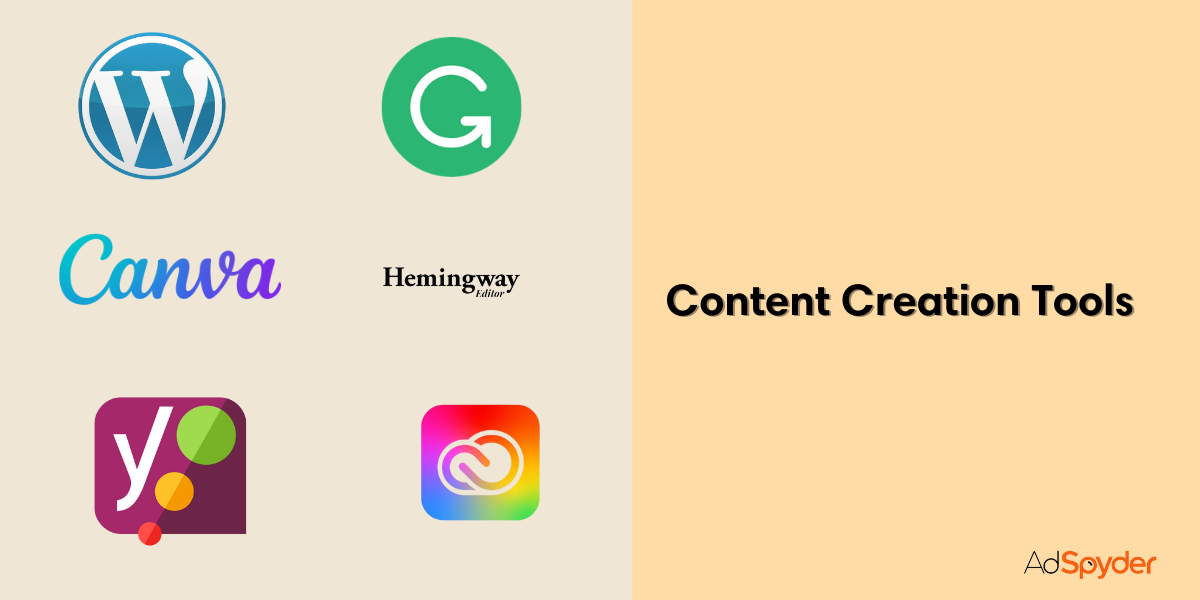
Now that you’ve checked out the content planning and strategy tools, here’s a few content creation tools :
7. Grammarly (Free & Paid Plans)
Grammarly is an essential tool for every content marketer. This grammar checker and writing assistant helps identify and correct grammatical errors, typos, and stylistic inconsistencies. Grammarly also offers suggestions for improving sentence clarity, fluency, and overall writing style. The free version provides basic grammar and spell check functionality, while paid plans offer more advanced features like plagiarism detection and vocabulary enhancement.
8. Hemingway Editor (Free)
Hemingway Editor is a web-based tool that helps you write clear, concise, and impactful content. It highlights complex sentences, suggests alternatives for adverbs and passive voice, and ensures your content is easy to read and understand. Hemingway Editor is a valuable tool for improving readability and ensuring your content resonates with your target audience.
9. Yoast SEO (Free & Paid Plans)
Yoast SEO is a popular WordPress plugin that simplifies on-page search engine optimization (SEO) for content creators. It provides real-time feedback on your content’s SEO score, analyzes keyword usage, and offers suggestions for optimizing titles, meta descriptions, and headings. The free version offers basic SEO optimization features, while paid plans provide additional functionality like content insights and internal linking suggestions.
10. Canva (Free & Paid Plans)
Canva is a user-friendly graphic design tool that empowers content creators to design stunning visuals for their content. This tool offers a vast library of free and paid design templates, including social media graphics, infographics, presentations, and more. No design experience is necessary – Canva’s intuitive interface allows you to create professional-looking visuals in minutes.
11. Adobe Creative Suite (Paid)
For content creators with design experience, Adobe Creative Suite offers industry-standard tools for creating high-quality visual content. Photoshop allows for advanced photo editing and manipulation, while Illustrator provides tools for vector graphics creation. InDesign excels in creating professional layouts for brochures, ebooks, and other marketing materials. While there is a learning curve associated with these tools, Adobe Creative Suite offers unparalleled creative freedom for experienced designers. With these, you can also create interactive 360 degree videos for attracting customers and engage effectively.
12. Unsplash (Free)
Finding high-quality, free images can be a challenge for content creators. Unsplash is a fantastic resource offering a vast collection of stunning, royalty-free images you can use for your content. Browse Unsplash’s library by category or keyword to find the perfect image to elevate your content’s visual appeal.
13. Pexels (Free)
Similar to Unsplash, Pexels offers a vast collection of free stock photos and videos that you can leverage for your content. Pexels’ user-friendly interface allows you to search for images by keyword or category, and all content is free to use for commercial purposes with no attribution required. You can use these for SaaS video marketing content also.
14. Headliner (Free & Paid Plans)
Headliner is a user-friendly tool for creating engaging video content from your existing blog posts. Simply paste your blog post URL into Headliner, and it automatically generates short, social media-friendly video clips with captions and text overlays. Headliner offers various video styles and customization options to ensure your repurposed content grabs attention on social media platforms.
15. Camtasia (Paid)
For more advanced video editing needs, Camtasia offers a comprehensive suite of features for creating professional-looking video content. Record your screen, webcam, or both, and utilize Camtasia’s editing tools to add text overlays, call-to-actions, transitions, and effects. Camtasia is a valuable tool for creating explainer videos, product demos, and other types of video content for your marketing campaigns.
16. WordPress (Free & Paid Plans)
WordPress is the most popular content management system (CMS) globally, and for good reason. It allows you to create and manage your website content easily-no coding knowledge required. WordPress offers a vast library of free and paid themes and plugins that extend its functionality and customization options. Whether you’re a solo content creator or managing a large team, WordPress provides a user-friendly platform to publish, manage, and optimize your content.
Content Optimization Tools
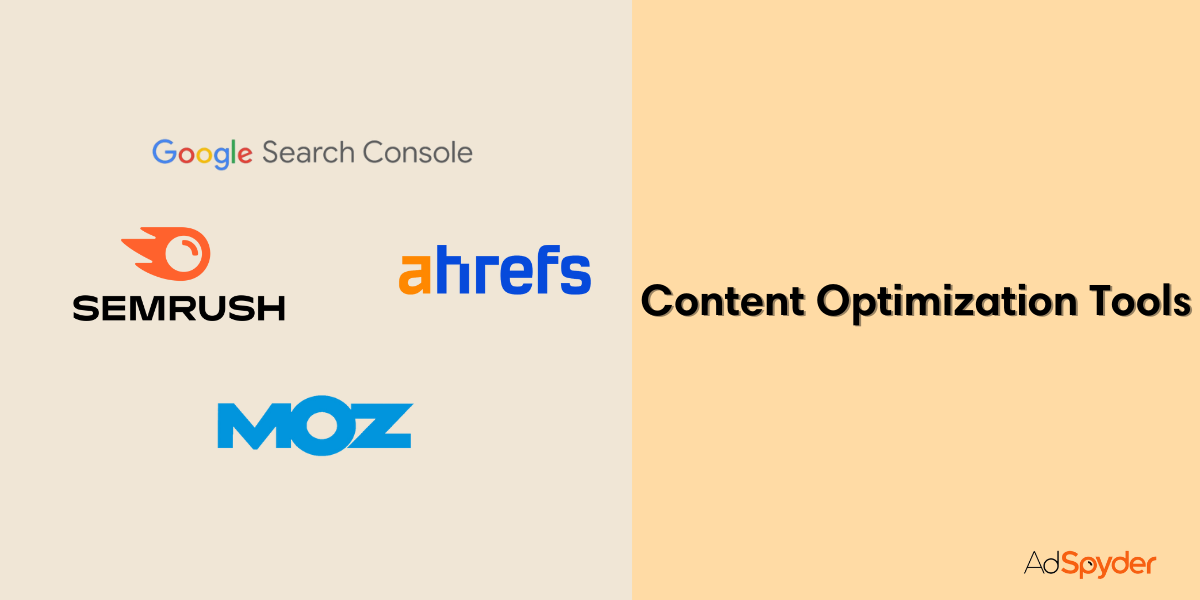
Here’s some versatile content optimization are tools :
1. Google Search Console (Free)

Google Search Console is a free tool offered by Google that provides valuable insights into your website’s search engine optimization (SEO) performance. Submit your sitemap to Google Search Console, monitor indexing status, identify crawl errors, and analyze website traffic sources (organic search, referrals, etc.). Utilize Search Console data to identify opportunities to improve your content’s SEO ranking and visibility in search results.
SaaS video marketing has emerged as a powerful tool for companies to showcase their software solutions, engage potential customers, and effectively communicate complex features through visually appealing and informative content
2. Semrush (Paid)

Semrush is a comprehensive SEO tool suite that offers a wide range of features for content optimization. Conduct keyword research, analyze competitor content, track keyword rankings, identify backlinks to your website, and perform on-page SEO audits. Semrush’s comprehensive data and insights empower you to optimize your content for search engines and improve your website’s organic visibility.
3. Ahrefs (Paid)

Similar to Semrush, Ahrefs is another paid SEO tool suite that offers valuable features for content optimization. Conduct in-depth keyword research with search volume estimates, analyze competitor content, identify backlinks, and perform technical SEO audits. Ahrefs also offers a broken link checker, which can help you identify and fix broken links on your website that can harm your SEO performance.
4. Moz (Free & Paid Plans)

Moz offers a suite of SEO tools, including a free MozBar browser extension. MozBar allows you to analyze on-page SEO factors for any webpage, view keyword difficulty scores, and generate content SEO suggestions. Paid Moz Pro plans offer more advanced features like keyword research, competitor analysis, and backlink tracking.
Content Distribution and Promotion Tools
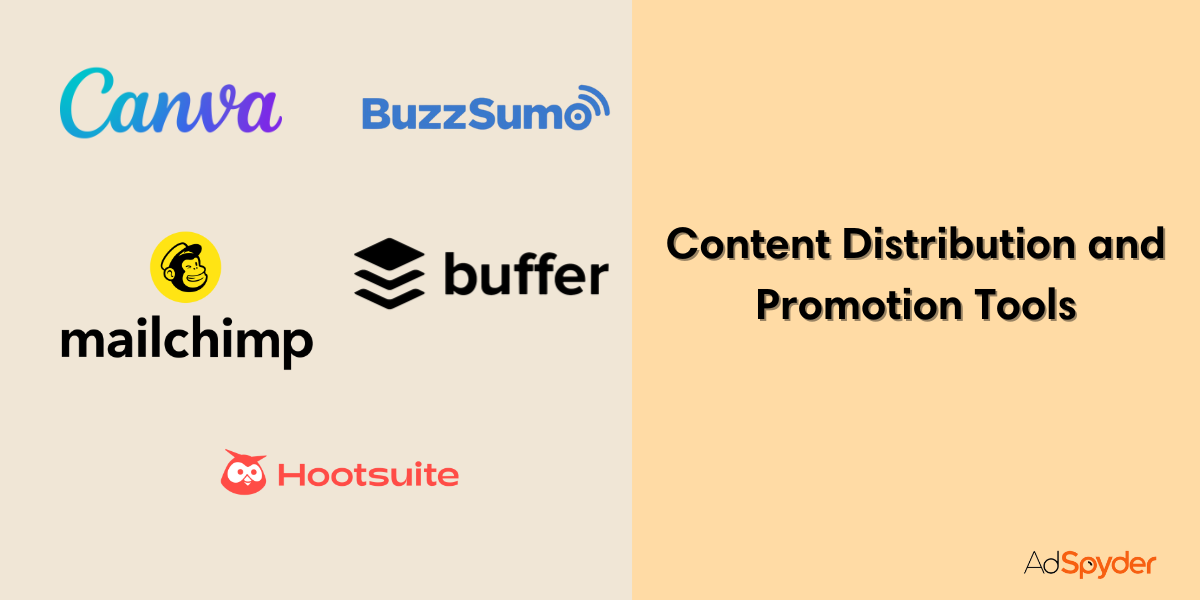
These are some content distribution and promotion tools :
1. Hootsuite (Free & Paid Plans)
Hootsuite is a popular social media management tool that allows you to schedule and publish content across various social media platforms (Facebook, Twitter, Instagram, LinkedIn, etc.) from a single dashboard. The tool also offers features for social media monitoring, engagement measurement for Instagram, Facebook etc, and competitor analysis. Schedule your social media content in advance, save time, and streamline your social media marketing efforts.
2. Buffer (Free & Paid Plans)
Similar to Hootsuite, Buffer is a social media management tool that allows you to schedule and publish content across various social media platforms. Buffer excels in user-friendly content queuing and suggestions for optimal posting times based on your audience demographics. Paid plans offer advanced features like social media analytics and reporting.
3. BuzzSumo (Paid)
BuzzSumo is a content marketing tool that helps you discover trending content and identify influencers in your niche. Utilize BuzzSumo to research high-performing content on specific topics, find relevant influencers to collaborate with, and amplify the reach of your content through influencer marketing strategies. You can also identify co-branding strategies from this tool.
4. Mailchimp (Free & Paid Plans)
Mailchimp is a popular email marketing platform that allows you to create and send email newsletters, marketing campaigns, and automated email sequences. Build email subscriber lists, segment your audience, personalize email content, and track email marketing campaign performance to nurture leads and drive conversions.
5. Canva (Free & Paid Versions)
Canva, previously mentioned in the Content Creation Tools section, can also be a valuable tool for content distribution and promotion. Utilize Canva to create eye-catching social media graphics, email newsletter headers, and other visuals to promote your content effectively across various channels.
Content Measurement and Analytics Tools
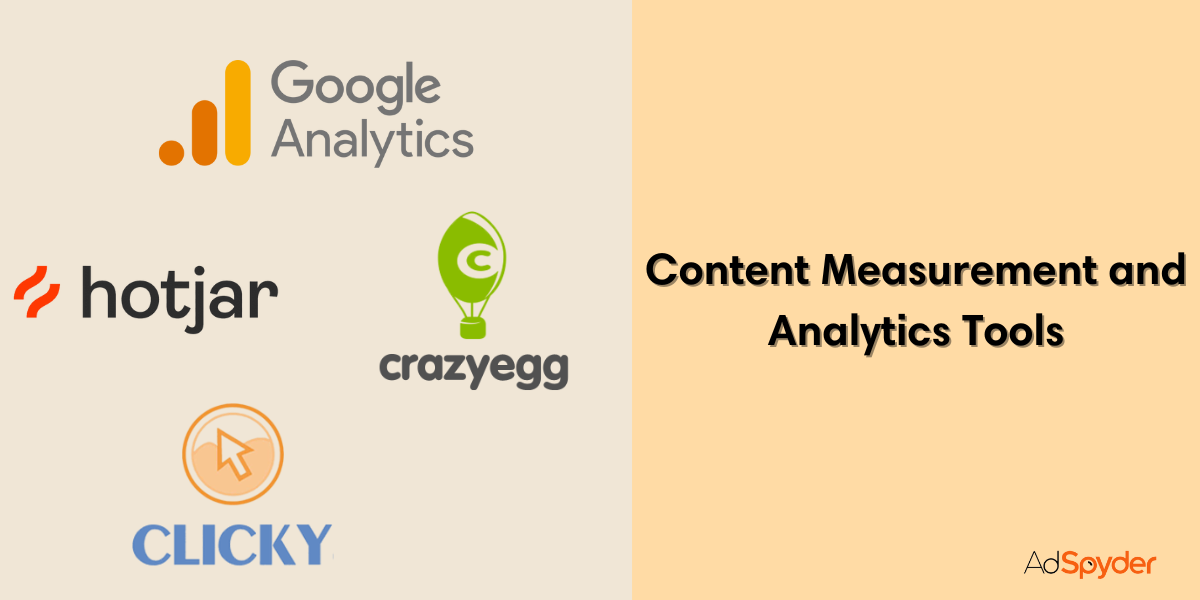
After you’ve created and uploaded your content, you’ll need to analyze its performance. Here are a few tools for it:
1. Google Analytics (Free)
Google Analytics is a powerful and free web analytics tool that provides comprehensive data on website traffic, user behavior, and content performance. Track website traffic sources (organic search, social media, referrals), analyze user engagement metrics (page views, time on site, bounce rate), and track conversions generated from your content marketing efforts. Google Analytics data empowers you to measure content ROI, identify areas for improvement, and optimize your content strategy for better results.
2. Hotjar (Free & Paid Plans)
Hotjar goes beyond basic website traffic data and provides valuable insights into user behavior on your website. Utilize heatmaps to visualize where users click, scroll, and interact with your content. Record user sessions to observe how users navigate your website and identify areas for improvement in user experience. Hotjar’s session recordings and user behavior data can be invaluable for optimizing your content’s presentation and user experience.
3. Crazy Egg (Paid)
Crazy Egg offers heatmaps and A/B testing tools that allow you to compare different versions of your content and identify which elements resonate most effectively with your audience. Test different headlines, calls to action, and layouts for your content landing pages to optimize conversion rates and ensure your content delivers on its intended goals.
4. Clicky (Free & Paid Plans)
Clicky is a user-friendly web analytics platform that provides real-time insights into website traffic and user behavior. Track website traffic sources, analyze user engagement metrics, and monitor conversions generated from your content marketing efforts. Clicky offers a clean and intuitive interface, making it easy to understand website traffic data and content performance.
FAQs
Here are some examples:
-Planning and Strategy: Evernote, Trello, Google Calendar, AnswerThePublic
-Content Creation Tools: Grammarly, Hemingway Editor, Canva, Unsplash, Pexels
-Distribution and Promotion Tools: Canva, Social Media Platforms
-Content Measurement and Analytics Tools: Google Analytics
-Identify your primary content marketing goals (e.g., increase website traffic, generate leads, boost brand awareness). Choose tools that align with these goals.
-Free and paid content marketing tools exist. Assess your budget constraints and prioritize features that offer the most value for your investment.
-Solo content creators might favor user-friendly tools, while larger teams might benefit from robust tools with collaboration features.
Both free and paid content marketing tools have their place. Free tools are a great starting point, especially for those with limited budgets. However, paid tools often offer more advanced features, functionality, and data insights that can significantly improve your content marketing efforts
Many content marketing tools offer extensive documentation, tutorials, forums for discussion and video resources to help you get started.
Several resources can help you stay updated on the latest content marketing tools. Subscribe to content marketing blogs, attend industry webinars, and follow social media accounts of leading content marketing tool providers.
Conclusion
Before we bring this blog to an end, here’s a quick recap of everything that we’ve discussed
Recap
This comprehensive guide has equipped you with the knowledge and resources to navigate the vast landscape of content marketing tools. We’ve explored the various categories of content marketing tools, highlighting must-have options for each stage of the content marketing workflow:
- Content Planning and Strategy: Utilize tools like Evernote, Trello, Asana, and AnswerThePublic to brainstorm content ideas, conduct keyword research, plan content calendars, and manage editorial workflows.
- Content Creation: Craft compelling content across various formats with tools like Grammarly, Hemingway Editor, Yoast SEO, Canva, Adobe Creative Suite (for experienced users), and content management systems like WordPress.
- Content Optimization: Optimize your content for search engines (SEO) to improve organic visibility and ranking with tools like Google Search Console, Semrush, Ahrefs, and Moz.
- Content Distribution and Promotion: Schedule and distribute content across various channels (social media, email marketing) using tools like Hootsuite, Buffer, BuzzSumo, Mailchimp, and Canva for creating visuals.
- Content Measurement and Analytics: Track content performance through key metrics (website traffic, engagement, leads generated) with tools like Google Analytics, Hotjar, Crazy Egg, and Clicky.
Final Thoughts
Remember, content marketing is a journey, not a destination. As you experiment with different content formats, topics, and distribution channels, the data gathered through these tools empowers you to continuously learn, adapt, and refine your content strategy for optimal results. Don’t be afraid to explore new tools and technologies as your content marketing efforts evolve.
Call to Action
Now that you’re armed with this comprehensive guide to content marketing tools, take action!
- Assess Your Needs: Identify your content marketing goals and budget constraints.
- Research and Select Tools: Explore the tools mentioned in this guide and shortlist those that align with your needs and budget.
- Start Experimenting: Don’t try to implement everything at once. Begin by experimenting with a few key tools and gradually add more as you become comfortable.
- Track and Analyze: Utilize the data and insights from these tools to track content performance, measure ROI, and continuously refine your content strategy for better results.
- Embrace Continuous Learning: The content marketing landscape is ever-changing. Stay updated on the latest tools and trends to ensure your content marketing strategy remains effective in the long run.
By following these steps and leveraging the power of content marketing tools, you can create compelling content that attracts your target audience, drives engagement, and achieves your business goals.
